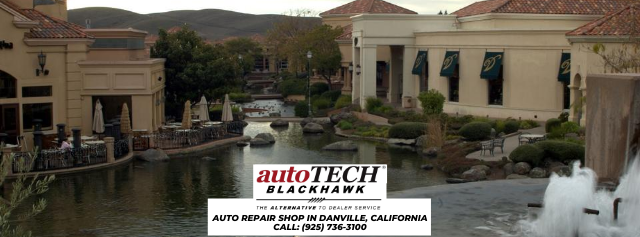How Often Should I Have My Brake Pads Replaced?
What Are Brake Pads?
Brake pads are a key part of your vehicle’s brake system; they sit between your brake shoe (the part that clamps down, slows down the rotation of the tires) and your brake drum. Without operating brake pads, other parts of your vehicle, such as disks, rotors and calipers, will begin to wear away. Maintaining effective brake pads is important to avoid costly repairs as well as unsafe driving conditions. That’s why it’s important to be able to identify when to replace the old brake pads of your vehicle.
When it comes to maintaining cars, there are important parts, and there are crucial parts. Brake pads are among the most crucial components that are considered to be normal wear, since they create friction that helps stop your car when it is pressed against the brake disk (also called the brake rotor) or, on some cars, the brake drum that rotates with the wheel. It is in the interests of every driver — not to mention the interests of their passengers and fellow motorists — that their brake pads always function properly and are replaced before they become less efficient.
But when are you supposed to replace the pads?
Any mechanic will tell you that it’s time to change your brake pads when the liner is between 3 mm and 4 mm. For context, know that the standard thickness of the new brake liners is 12 mm. The first half of the lifespan of your brake pad is usually carefree. However, as it wears more than 6 mm, listen to the sign that it’s time. Brake pads are fitted with a metal burr that contacts the rotor at 3 mm, causing a squeal that signals you to use the brakes. Plus, what’s to be done if your car shakes when you brake.
Don’t ignore the squeal. Ignoring this warning results in rotors being damaged, first scored, then overheated, and potentially even warped as pads wear nothing. Ideally, you’re going to catch them before you hear that telltale squeal, so you can save your rotors and budget accordingly. Consider, cause and fix the DIY for smoking brakes.
Brake Pads Wear Out
Whether the brake pads on your vehicle are made of metallic, organic, ceramic or composite materials, they lose a small amount of material each time they are used. Eventually, they wear thin, which means that they can not generate the heat caused by friction as effectively as possible, diminishing their ability to stop the vehicle quickly and potentially increasing the distances needed to do so. At the end of the day, they wear out completely, which can cause a host of problems.
If you notice that your brakes aren’t as responsive as they once were, or that they fade quickly, or that the pedal feels different after you’ve been driving in traffic for a while or down a long mountain pass, it might be time for new brake pads. But sometimes in normal driving, the brakes will feel fine until something else tells you they need to be replaced.
Brake-Wear Warning Signs
Some cars have a brake pad sensor that informs the driver of the brake pads worn by a light in the dashboard or a message on the startup. Some brake systems call attention to themselves by squealing or screeching when they get too thin; while unpleasant, it is usually harmless. It is caused by a metal scraper attached to the pads, which is used as a warning alarm. If the noise is less than a screech and more than a squeezing, grinding sound, the pads on one or all of the wheels may be completely removed, and further use of the brakes may cause serious damage to the rotors. This is not the sound you want to hear, and if you do, you need to take your vehicle to the brake shop immediately. Better still, you want to replace the pads before you ever hear such warnings.
Are You Looking for an Independent Auto Repair Shop you Can Trust?
If you’re considering making a change to an independent auto repair mechanic trusted by thousands of happy customers, look no further than autoTECH Blackhawk. Why? We differ from other automotive repair stops because we are a relationship shop. This means that the more of your car repair needs we support you with, the better able we are to customize our recommendations based on your driving habits and needs. Whether you want to keep the daily driver in ‘good enough’ condition, style your new car so that it’s customized just for you, maintain your favorite car in ‘like new’ condition, or even train your whole family to be more knowledgeable about cars – we partner with you to ensure that your cars meet your needs. We also offer an industry-leading 3-Year/36,000 mile warranty, so we only use Original Equipment and manufacturer recommended products. Contact us now to book your no-contact, friendly appointment! We truly value your trust and your business, so thank you for staying local with your auto repair needs.

By Jon ‘ShakataGaNai’ Davis, CC BY 3.0, https://commons.wikimedia.org/w/index.php?curid=3177569
We have come up with some other amazing articles answering these questions! Check them out here:
What Are The Most Common Auto Repairs?
What Should I Do When My Check Engine Lights Come On?
What Happens If I Ignore My Low Tire Pressure Warning Light?
How Often Should I Have My Brakes Checked?
How Do I Know What Type of Oil Filter Do I Need?
How Do I Know What Type of Oil My Car Needs?
What Is Routine Maintenance On A Vehicle?
